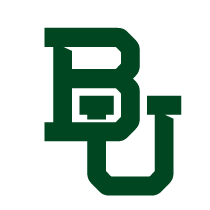We sat down with Baylor MSW graduate, Nataly Sanchez, to answer the question, “what can you do with a social work degree.” Use Nataly’s journey to reflect on your own aspirations and what jobs you can find with an MSW.
Graduation year: 2022
Hometown: Eagle Pass, Texas
Undergraduate degree: Bachelor of Social Work, Baylor University
What made you decide to pursue a Master of Social Work (MSW)?
I didn’t originally plan on choosing social work, through hard conversations, several moments of reflection and helpful mentors, I learned that social work had found me. Specifically, my English professor in my sophomore year introduced me into the social work profession – I haven’t looked back since.
Why Baylor
The Diana R. Garland School of Social Work has a great, accredited advanced standing program and provides a great amount of resources for everyone.
Along with that, I fell in love with Waco and knew I wanted to stay in town. I thought that the best way I could give back to the Waco community was to pursue my degree, in hopes of continuing to advance more equitable practices and learn more about what it meant to create change through the community practice track.
What needs to be debunked about jobs with an MSW?
I honestly believed that social work was CPS and therapy. I didn’t see an in-between or out-of-the-box until I took an Introduction to Social Work course. Still to this day, I get excited when I meet someone in the community, learn about their role, and find out that they have a social work degree. We are everywhere!
What are you up to now?
I am currently a Community Organizer at Grassroots Community Development. Grassroots is committed to children, neighbors and communities through the development of thriving neighborhoods. There is a lot of overlap [with stereotypical social work careers] in the skills we use to connect with residents. For example, in the creation of placemaking through consensus organizing and through providing leadership resources such as the Grassroots Leadership Training.
The MSW program was helpful, not only in helping me build my skills but also in providing the internship that introduced me to Grassroots, which led to my current role at the agency.
What’s a day in the life look like for a Community Organizer?
Our days are always different — with changes from day-to-day and season-to-season. On a typical day, I spend most of the day out of the office. This is because a large part of my role is getting to hear the stories of the different community members in the communities we serve.
Our team will meet with a diverse audience of people throughout the day, always asking, “Who do you recommend I meet with next?”. Since we work with businesses, places of worship, neighborhoods and schools, some days it may look like tabling an event at a school, others may look like helping a business apply to a community grant, or it may look like assisting residents in hosting a block party or providing resources from what was said at the last city meeting.
What makes your job in social work unique?
Our role as community organizers is unique since we have the opportunity to engage with meetings in the community at the grassroots level and the meetings that you typically think of when you hear about “power.” In all these meetings, I am still using all my Shulman skills, such as active listening, reaching into the silence, and questioning work.
It’s not the type of job that you immediately think of when you think of social work, however, there are still several one-on-ones and advocacy for community members. At Grassroots we use an Asset-Based Community Development approach, bringing in a couple of the theories that we use in more typical social work settings.
Advice to future MSW students?
Along with your experience, expertise and skills, you bring something special to the table that many agencies and organizations are looking for. They are looking for someone that has a different approach and can bring something new to their group. Because of this, I believe that the opportunities to find a career with your MSW degree are endless.
What will you do with an MSW? Find your own path with a Baylor MSW with our quiz or explore all that a Baylor MSW can offer.













